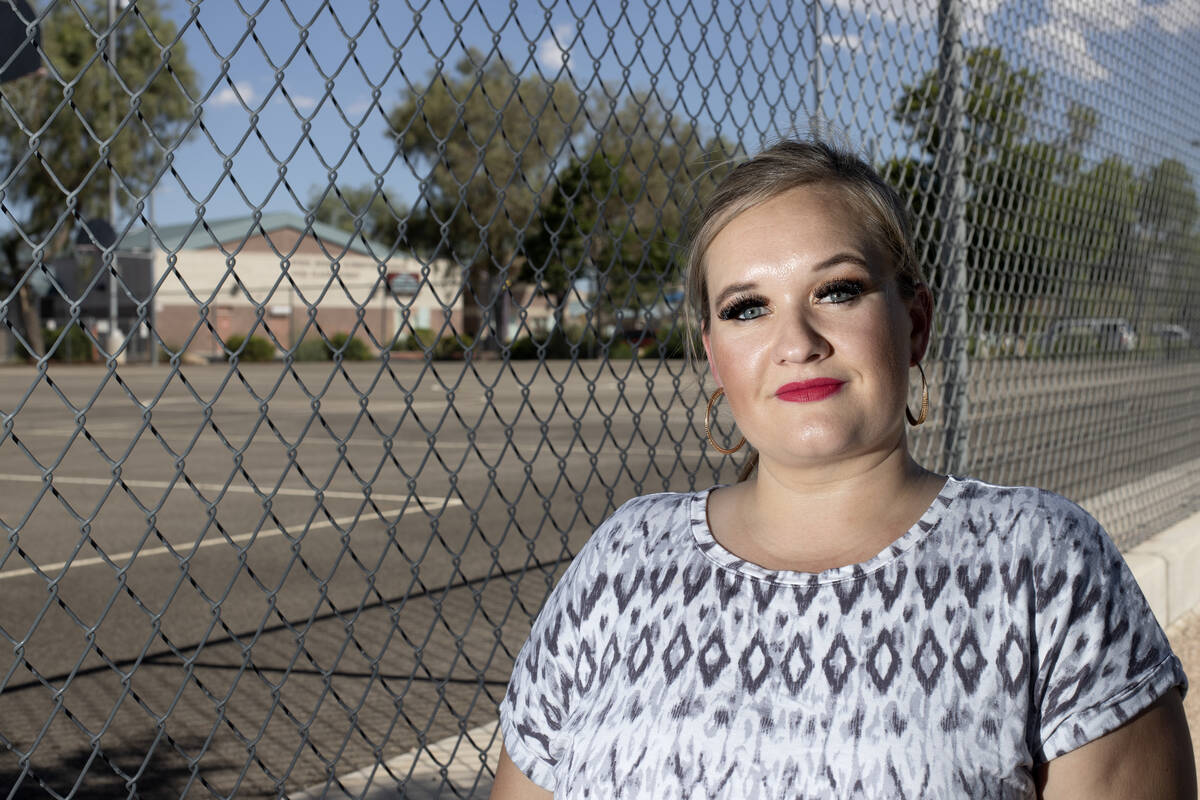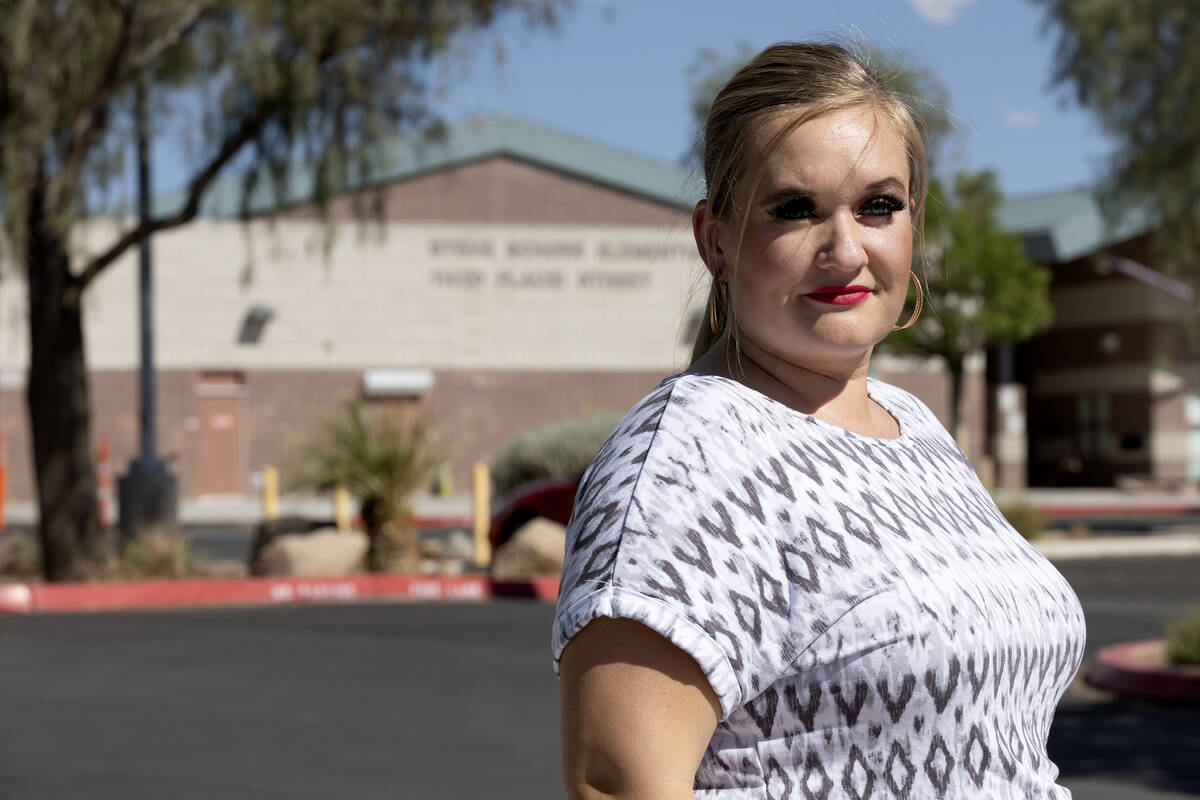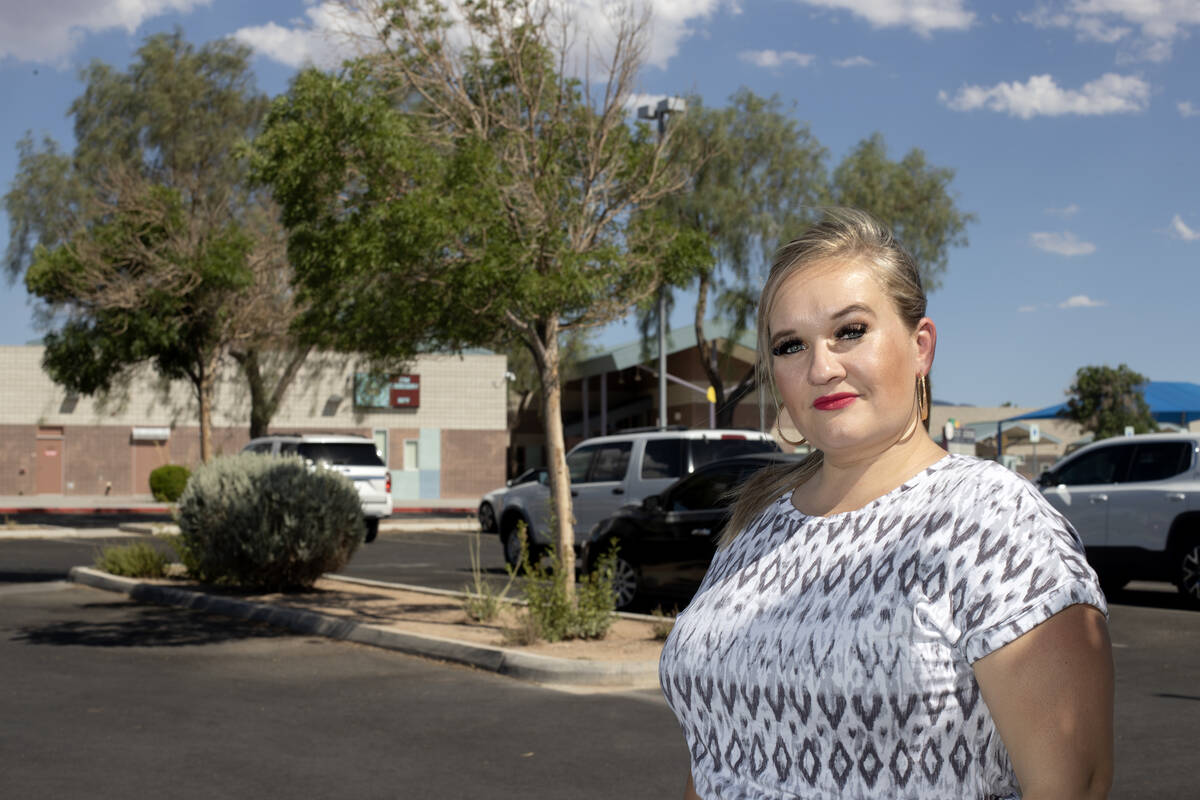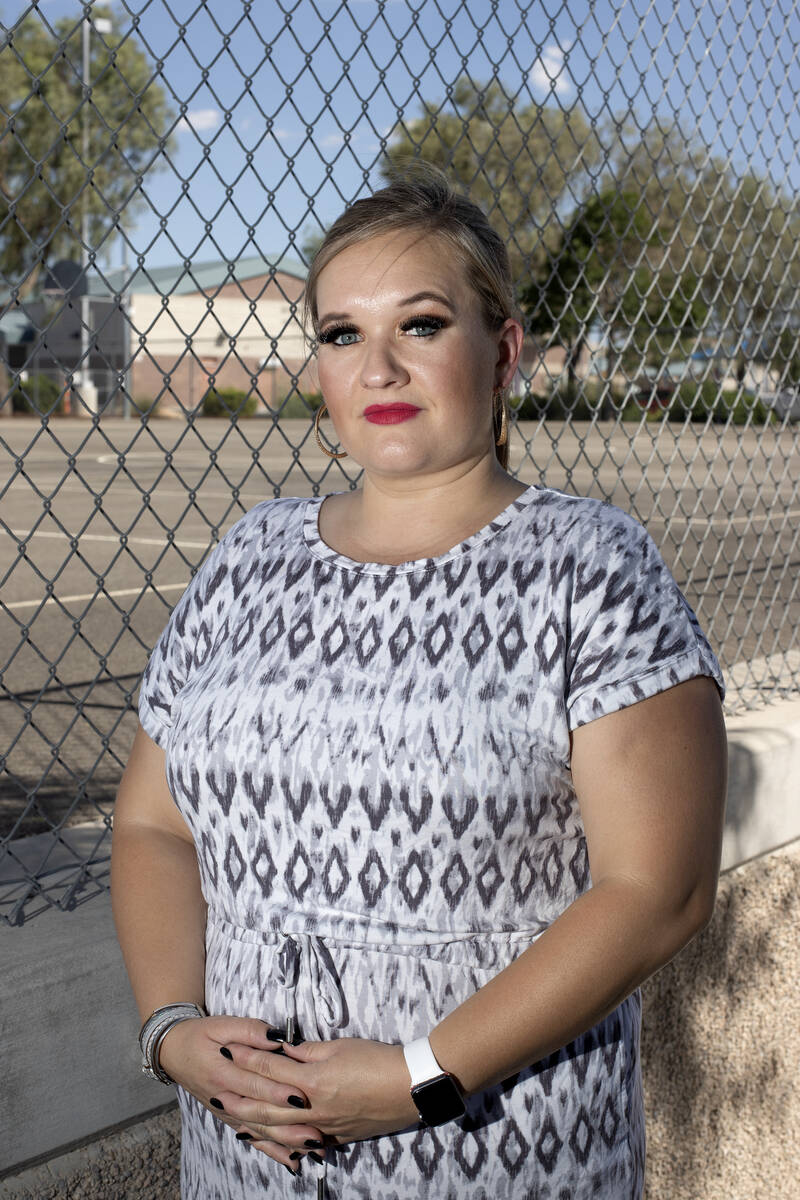What ‘work actions’ could look like for Clark County teachers
The first few weeks of the Clark County School District’s new school year will likely include teacher rallies outside school buildings and large crowds at School Board meetings.
Contentious contract negotiations have been underway since late March between the Clark County Education Association teachers union — which represents about 18,000 licensed employees — and the nation’s fifth-largest school district.
Educators are frustrated and angry, and they’re organizing a number of activities and meetings because they want a contract and they want it now, CCEA Executive Director John Vellardita said Friday.
“Our outlook is to try to secure one,” he said.
More than 3,000 educators attended a teachers union member meeting in late July where they set an Aug. 26 deadline to reach a tentative collective bargaining agreement with the district.
If there’s not a contract in place to ratify, union members could decide whether to take “work actions.”
But in a state where striking is illegal for public employees, what is a work action?
What’s a ‘work action’?
It’s unclear yet exactly what kinds of actions the union might take if members decide to move that direction.
“The menu of work actions has not yet been decided and voted on by our members,” Vellardita said Friday.
But Ruben Garcia, a law professor at UNLV who specializes in labor law, said there are a lot of activities unions and its members can legally engage in, such as hard bargaining and “puffing up their position in the press.”
“That’s usually what you see them doing,” Garcia said. “I think that’s what you see them doing so far.”
But if it gets to the point of ceasing work or encouraging others to stop work, that is when it becomes a matter of Nevada’s public sector bargaining law.
There is a line between “talking tough” and actually making preparations to go on strike, Garcia said, and a judge will ultimately determine if they’ve crossed that line.
Vellardita told reporters during a Tuesday press conference that one example of a work action could be teachers working only their contracted day — 7 hours, 11 minutes — and no longer working for free beyond that.
That could have impacts in areas such as lesson planning, the ability to meet with parents and students, and whether before and after-school clubs will be offered.
It’s often called “work-to-rule,” when employees do only the minimum of what’s required under their contract.
When asked at a Friday event whether he supports a possible teachers union work action, Gov. Joe Lombardo said a work action and strike are two different things.
“You may have a change in what we call as a ‘sick out’ or other options or you’re not working the overtime hours that are needed for success,” he said. “So there’s a lot of different things that they may explore and hopefully, hopefully, my fingers are crossed, because everybody suffers as a result of that.”
‘Our educators are professionals’
Garcia, the UNLV law professor, said there is a false perception that government workers do not have as many rights as non-government employees. In reality, they do, because they are considered constitutional officers.
Nevada’s right to work law came into play in 1959 during a time when public sector unions were organizing in the rest of the country, Garcia said. Nevada legislators decided they should regulate it, and many other states have very similar prohibitions.
Superintendent Jesus Jara said Thursday during an interview with the Review-Journal that there are some rumblings about teachers union “work actions” that he’s watching from afar.
Jara said he went to school campuses Wednesday — the first official day back for returning teachers — and educators are excited to be back and welcome their students.
He said teachers are anxious about the first day of school just like they are every year.
In response to a question about what impact work actions — such as teachers deciding not to work past their contracted hours — could have, Jara said: “I know that our educators are professionals.”
‘I put a lot of work into this’
Kindergarten teacher Kristan Nigro said she wanted more than ever to hit the ground running with her students and to be excited about this school year.
But the truth is that with the “looming situation” of not having a contract, “it’s really hard to get my mind focused,” Nigro, a teacher at Schorr Elementary School in Las Vegas and a member of CCEA’s executive board, said.
Nigro said she fills many roles with the district, including with employee onboarding and mentoring or staying after school to run clubs.
“Would I work outside of my contract hours? I don’t know, to be honest,” she said.
Unless there’s a need that’s imperative in order for her students to succeed, Nigro said she could maybe see herself not putting in extra hours.
With help from a couple of colleagues, she also manages the school garden at Schorr Elementary, which includes fruit trees, a grapevine and an outdoor classroom.
Nigro wrote grants and raised close to $25,000 to create the space. She maintains the garden when school isn’t in session — including over the summer and during the COVID-19 pandemic when distance learning was underway — and runs a club and sets up farmers markets.
She started the garden because she wants students to have the opportunity to be in a club and spend time outside. Plus, she said, it’s a chance for them to relax outside of the constraints of school schedules and requirements.
“Because we live in a desert, these kids yearn for a green space to be in,” she said.
The club also teaches children financial literacy skills, responsibility and economics at a young age, Nigro said. “I put a lot of work into this.
‘No educator should have to do that’
As the school year kicks off, “pay day rallies” will be held in front of schools — either before or after school — alerting parents to what’s happening with collective bargaining, according to Vellardita.
Planning is already underway for rallies, which are being organized by individual work sites, and will begin either the first week of school or the following week, he said.
Vellardita also said several hundred educators will show up to the Aug. 10 School Board meeting.
On Wednesday, Nigro spent the day setting up her classroom. Then, she delivered food through Uber Eats.
The kindergarten teacher who has a master’s degree and has worked for the district about 10 years started driving Uber Eats over the summer to try to cover her bills.
“No educator,” she said, “should have to do that.”
Contact Julie Wootton-Greener at jgreener@reviewjournal.com or 702-387-2921. Follow @julieswootton on Twitter.




















